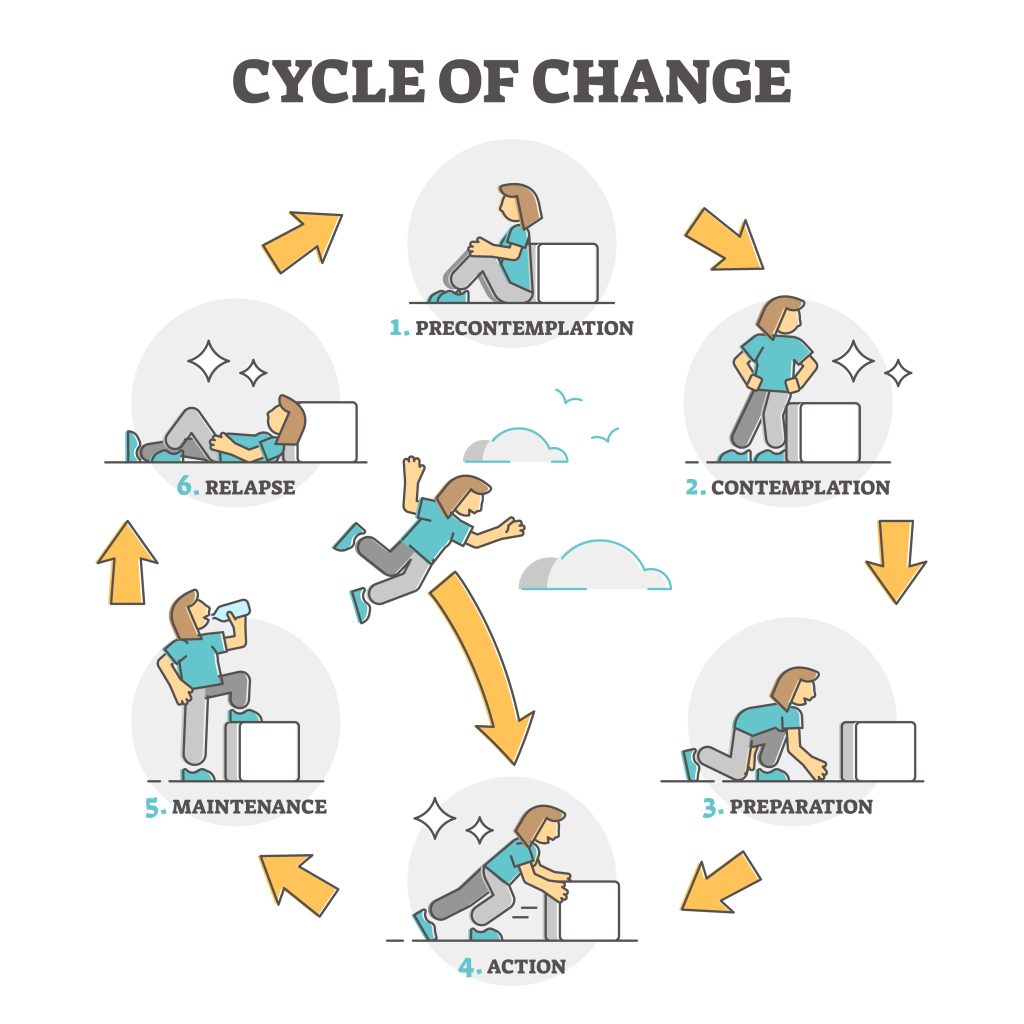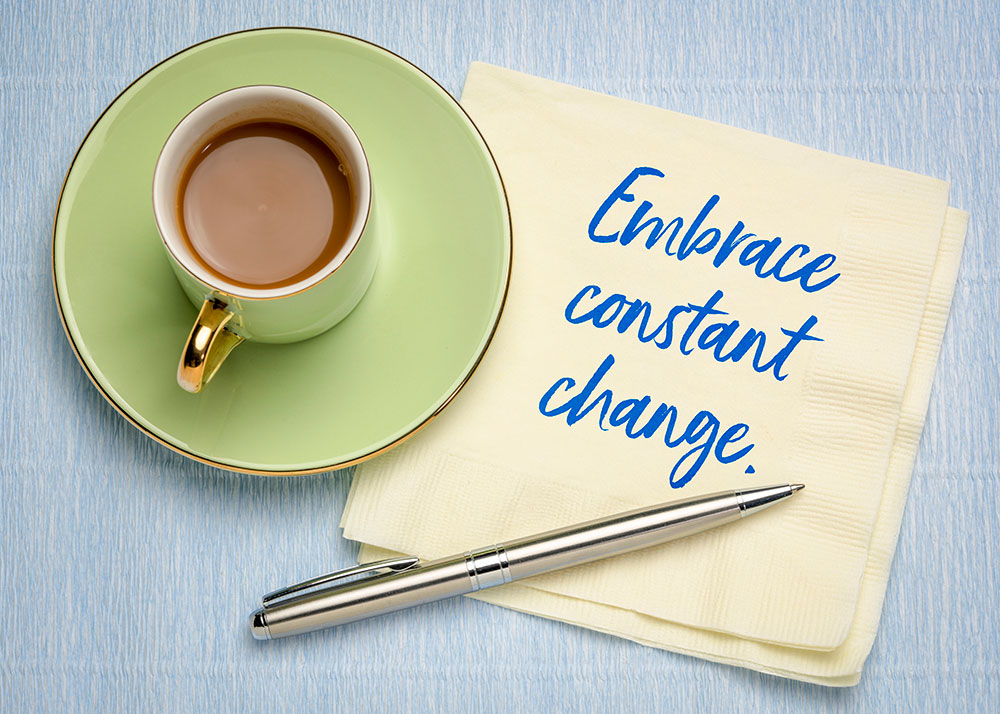Change, as they say, is the only constant in life. Yet, why does it feel so daunting at times?
Change is stressful. And, I focus on helping people … women in particular … manage stress. So, making change easy … or at least easier … will tick a lot of boxes.
I believe the key lies in understanding the stages of change, especially for mature women who are looking to transform holistically. It’s easier to embrace the stress of change when we understand what’s happening mentally, emotionally, and physically.
Dr. Gala’s Quick Take
Knowing what to expect in a change can make everything feel less overwhelming, especialy for women going through big life changes. Understanding how change affects you mentally, emotionally, and physically helps you handle stress better and move forward with more kindness towards yourself.

Understanding the Stages of Change
Let’s dive deep into the process of change and the journey it requires making sure that we don’t create more stress than we can manage.
Denial is a pivotal point in one’s transformation. To successfully navigate change, it’s vital to recognize and understand the stages. Moving ahead without readiness will only result in resistance, making the change process more challenging.
Stages of Change Model – A Closer Look
Originally developed to support people recovering from addiction, the stages of change model offers profound insights for anyone. One of the stages, referred to as ‘determination,’ represents both preparation and planning. In this stage, an individual acknowledges the need for change and starts drafting a realistic plan.
This isn’t just about determination. Planning and preparation are just as critical. Committing to change without a solid strategy and necessary skills can lead to a fragile and unsustainable action plan. This is where professionals come into play. With guidance, individuals can anticipate challenges and strategize for them.

Breaking Through Denial – The Evolution of Change
As we progress from denial, we venture into the subsequent stages. Being aware of all the stages … before and after determination … can help to increase self-awareness. And know when the time is right to instigate change.
To simplify:
- Pre-contemplation: This is the stage where individuals are often unaware of the problem.
- Contemplation: The realization of a potential issue starts to dawn, but there might still be hesitation to initiate the change. Remember, there is stress associated with change.
- Determination (Planning and Preparation): Recognizing the need for change, researching, and creating a plan.
- Action: Implementing the change.
- Maintenance: Ensuring that the new habits or behaviors are sustained over the long term.
Typically, it takes about six weeks for a new habit to solidify, but to prevent relapse, it’s ideal to extend this practice for at least three to six months. Once the new habit is firmly established, the maintenance phase continually ensures that we aren’t reverting to old behaviors.
Navigating the Stress of Change for a Better You

Change, especially when you’re feeling outside pressure, often leads to resistance. The trick is to shift focus and realize that the change is actually preferable to what you’re currently experiencing. For change to be effective, it needs to be aligned with personal values and life goals. This alignment prevents relapses and ensures sustainability.
Boundary setting, both internal and external, is crucial during this transformative journey. These boundaries must be established thoughtfully. When we breach our own boundaries, it can lead to unforeseen complications.
Empathy and Understanding in Transformation
Understanding struggles and challenges during the transformation process fosters empathy. As we navigate through these stages ourselves, it becomes easier to shed judgments and extend understanding to others.
In essence, every habit serves a purpose. Some habits might be fulfilling a need without adverse effects, while others might have unwanted consequences. Recognizing how a habit serves you allows for the identification of healthier alternatives or solutions to underlying issues.
Conclusion: Embrace the Change
Change doesn’t have to be as intimidating as it seems. With awareness, understanding, and the right strategy, you can replace unwanted habits with relative ease. To all the skeptics out there, I invite you to give this approach a try. After all, the journey of transformation begins with a single step.
“If you came into my office, I’d ask you a lot of questions that would help us connect the dots … so that together we can deal with your toxic stress.
Every situation is unique and you need a plan that works for you. Not a one-size-fits-all solution.
If you’re thinking you can’t come into my office, don’t worry. I’ve created a program with all of my initial recommendations to help you unravel the mystery. You can use it at home and at your convenience.
So if you’re thinking that managing chronic stress just isn’t possible … or even the answer … for you, I want to show you what you may be missing.
And how you can identify the toxic stressors that are creating your symptoms with my Human Energy System Reboot. You can get started HERE.” – Dr. Gala







